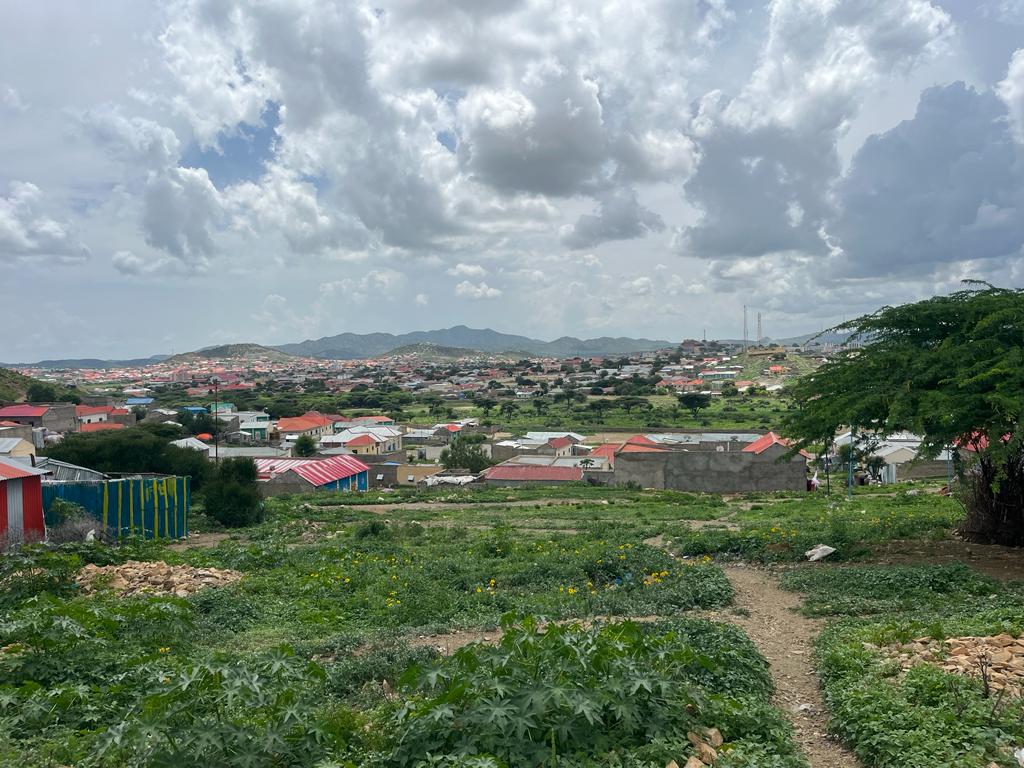Land and housing markets in Somaliland are complex. Eviction is rarely mentioned in discussions regarding the country’s urban issues. Yet many people in Somaliland face displacement and eviction. Forced evictions are closely related to infrastructure development (such as the construction of roads) undertaken by the government. In this blog post I explore tenure security, fear of eviction, rent seeking and collective action against eviction in Hargeisa and Borama. The analysis presented here is informed by surveys and interviews conducted in these two cities.
Survey results indicate the most common ways of acquiring land or a house is through purchasing or building oneself (29%), long-term rental (17%) and allocation by government or municipality (16%). Short-term rental and inheritance are less common methods of acquisition. Yet almost half (45%) of respondents who class themselves as owners state they do not have any document proving ownership. For those who do have ownership papers, the most common (70%) type of document is a title deed. In addition, survey data shows that 36% of respondents do not have rights to use their house or land.
Survey respondents were also asked how likely it was that their household would lose ownership or user rights in relation to their house/land in the next five years (see chart below). On average across the two cities, around 37% said it is likely or extremely likely. This shows that tenure security is a significant problem for many people. When asked how likely it is that the government would offer protection if somebody tried to make respondents leave their property/land, only 53% of all respondents said that they believe the government will protect them.

Due to increasing land prices in Hargeisa and Borama, it is very expensive to buy land. In general, the urban poor seek to rent in the most affordable areas. Survey respondents reported that around 27% pay monthly to rent their accommodation and the average monthly rent is US$86. The key driver of evictions comes from landlords when their tenants fail to meet rental payments. Sometimes the temporary renting of land is possible, particularly for those who are able to build temporary houses made of iron sheets, plastic, cloth and sticks (known as ‘buul’). However, a landlord might suddenly need their land back to build a house or resell the land.
In one of the study sites, Malawle (on the outskirts of Hargeisa), the local government had a direct role in forced evictions. The new mayor planned a road construction project without consulting those who were to be evicted. The government has provided those evicted with a new piece of land in an open, hilly suburb area. While most people are happy that they were given land of their own despite it being far from where they were originally located, the majority of residents complain about the lack of services, the difficulty of digging toilets, and the higher prices of water, electricity and transportation.
Similarly, in Borama, land clearing for roads being developed by the Ministry of Public Works (with the support of the local government) has also led to forced evictions. Although most of the land being cleared is in the periphery, many people have been affected; some have lost all their land. Many of the residents we interviewed complained about the lack of information and notices from the government, and also the lack of consultation during the process to create a master plan for the city.
Eviction impacts the urban poor differently. Most look for a relatively cheap lease if they can afford to pay small amounts. Others look for temporary shelters owned by family or friends, send some family members to live with relatives, or solicit contributions from a clan member’s ‘qaadhaan’ (money collected by the clan leaders to pay compensation for claims against their fellow clan members) to obtain land or even a home.
It is clear that those already vulnerable, such as ethnic minorities and displaced persons, find it particularly difficult to cope with evictions. It is therefore important to conduct further research to understand the experiences of those vulnerable groups, as well as eviction in the context of pastoralism (in which moving from one place to another in search of pasture and water is the norm). This includes collective action to fight evictions.
Furthermore, humanitarian and development advocacy programmes tend not to specifically focus on evictions, though they do sometimes touch upon evictions in the course of work to highlight broader protection issues. Therefore, more can and should be done by advocates as well.
Ahmed Omer (Researcher & Data Analyst at the University of Hargeisa’s Institute for Peace & Conflict Studies) is a member of the Inclusive Urban Infrastructure (IUI) team. IUI is a project funded by UK Research and Innovation through the Global Challenges Research Fund under the title ‘Towards Trajectories of Inclusion: Making Infrastructure Work for the Most Marginalized’ (grant reference number ES/T008067/1).
